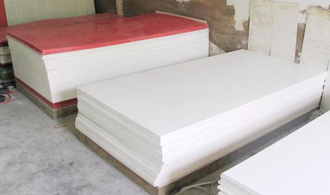- 10
- Jan
What are the technical requirements for SMC insulation board
What are the technical requirements for SMC insulation board
SMC insulation board is a very popular insulation board product. For customers who want to buy it, the first thing they want to understand is its technical requirements. Only by knowing these can they make a correct choice. Next, let’s follow the professional manufacturers to understand the technical requirements of SMC insulation board.

1. Insulation resistance and resistivity
Resistance is the reciprocal of conductance, and resistivity is the resistance per unit volume. The less conductive the material, the greater its resistance, and the two are in a reciprocal relationship. For insulating materials, it is always desirable to have the highest resistivity as possible.
2, relative permittivity and dielectric loss tangent
Insulating materials have two uses: the insulation of the various components of the electric network and the medium of the capacitor (energy storage). The former requires a small relative permittivity, the latter requires a large relative permittivity, and both require a small dielectric loss tangent, especially for insulating materials used under high frequency and high voltage, in order to make the dielectric loss small, both require selection Insulating material with a small dielectric loss tangent.
3, breakdown voltage and electric strength
The insulation material is damaged under a certain strong electric field, and it loses the insulation performance and becomes a conductive state, which is called breakdown. The voltage at the time of breakdown is called breakdown voltage (dielectric strength). Electric strength is the quotient of the voltage when breakdown occurs under regular conditions and the distance between the two electrodes that bear the applied voltage, which is the breakdown voltage per unit thickness. Regarding insulating materials, in general, the higher the breakdown voltage and electrical strength, the better.
4, tensile strength
is the tensile stress that the sample bears in the tensile test. It is a widely used and representative experiment for the mechanical properties of insulating materials.
5. Combustion resistance
refers to the ability of insulating materials to resist burning when in contact with flames or to prevent continuous burning when they leave the flames. With the increasing use of insulating materials, the requirements for their flame resistance are important. People have improved and improved the flame resistance of insulating materials through various methods. The higher the combustion resistance, the better the safety.
6, arc resistance
Under regular experimental conditions, the insulating material’s ability to withstand the arc effect along its surface. In the experiment, the AC high voltage and small current are selected, and the arc effect of the high voltage between the two electrodes is used to determine the arc resistance of the insulating material at the time required for the insulating material to form a conductive layer. The larger the time value, the better the arc resistance.
7, sealing degree
It is better to seal and isolate oil and water quality.
